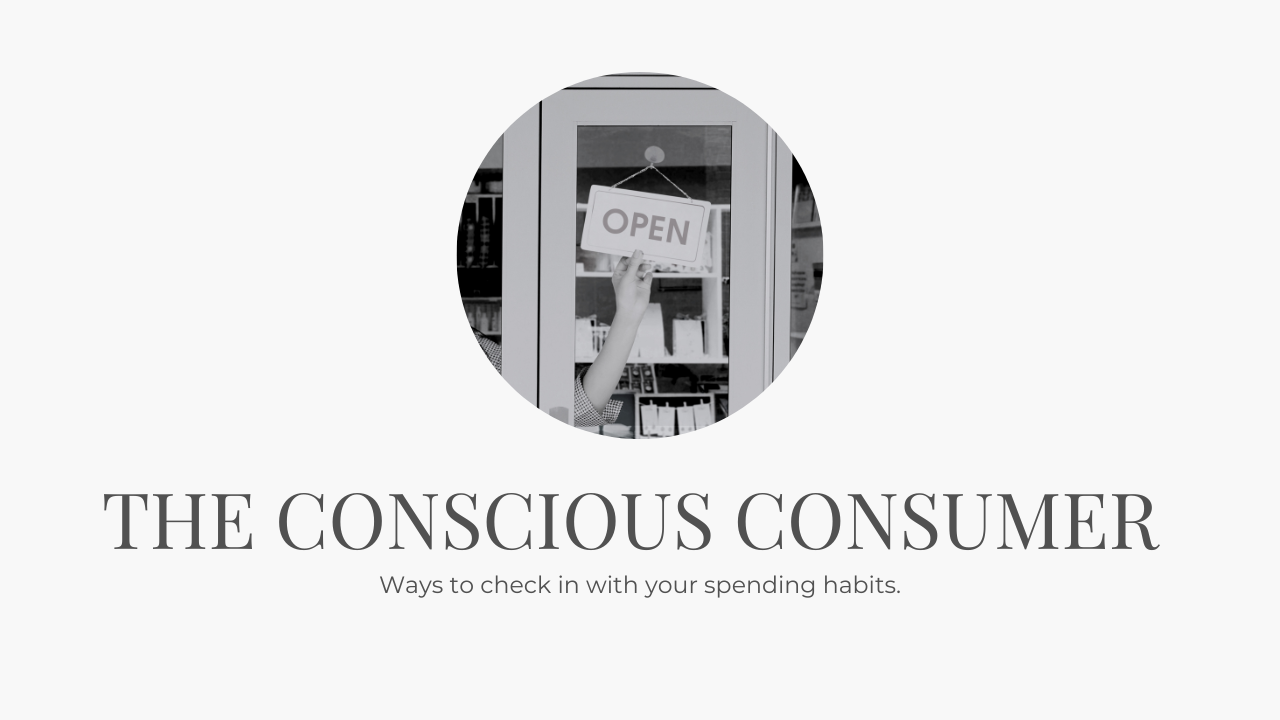I came across this absolutely hilarious meme the other day, poking fun at some of the major retail giants that have had to file Chapter 11 in the face of the unstoppable rise of online shopping. It got me thinking, what lies ahead for us in the world of shopping?
My deepest hope is that the next evolution of consumerism will prioritize a heightened awareness of our spending habits, delving into the psychology behind them and inspiring us to become more conscious consumers in the process. I’ve been putting some thought into this and here are five ways I’ve been actively working on improving my own consumer habits:
Every purchase we make is like a wink to the universe, whispering our vision for the future we desire. Let’s be savvy shoppers, choosing with care and aligning our shopping with our core values. Our shopping habits can reshape our perspectives, amplify our happiness, cultivate positive habits, and contribute to building a better society.
Reduce Instant Gratification:
We have become so accustomed to receiving our desired items within a mere 2-3 days, often at incredibly affordable prices. This aspect permeates all the other points I am personally working on. But what if we took a moment to pause before making a purchase? What if we practiced the art of waiting? Would we still desire that item a week later? How about a month or even longer? If we couldn’t have it within a five-day timeframe, would we still go ahead and buy it?
By checking in with our gratification indicator and examining the multitude of reasons behind our desire to make a purchase, we might discover that we don’t actually need it or, even more enlightening, that we don’t truly want it as much as we initially thought. If we become comfortable with reducing that instant rush of dopamine, would we approach our buying habits in the same manner?
Let’s reflect on these questions and consider the impact of delayed gratification on our consumer behavior. It might lead us to a more mindful and intentional approach to our purchases, ultimately bringing us greater satisfaction and fulfillment in the long run.
Embrace Being Picky:
Feel empowered to want the very best. But how can we be certain that we are indeed getting the best? The answer lies in research and inquiry. Just as we wouldn’t make significant investments like purchasing a home or a car without thorough preparation, let’s extend that mindset to all our purchases, regardless of their size. By treating every purchase with the same level of consideration, we can begin to reduce our reliance on instant gratification, as I mentioned before.
So, let’s embrace a proactive approach. Take the time to gather information, ask questions, and explore our options before making a decision. This practice will not only enhance our buying experiences but also empower us as consumers. Remember, it’s not just about acquiring the item; it’s about ensuring that it aligns with our needs, preferences, and values. By making informed choices, we can move closer to a more conscious and fulfilling consumer journey.
Reduce Consumption:
Okay, I want to clarify that I’m not only referring to our purchasing habits, but also to our overall consumption—both physical and mental. It’s essential for us to take a step back and become conscious of what we’re consuming in all aspects of our lives. By actively paying attention to the experiences that engage all our senses, we may uncover habits and thought patterns that influence our consumer behavior too.
Let’s cultivate a mindful approach to our consumption. This means being present and aware of what we’re taking in, whether it’s the products we buy, the media we consume, or the conversations we engage in. By doing so, we can evaluate whether these choices truly align with our values and contribute to our overall well-being.
Let’s prioritize quality over quantity, choose content that uplifts and inspires us, and surround ourselves with positive influences. By fostering a healthy balance in what we consume, both physically and mentally, we can create a more intentional and fulfilling lifestyle.
Seek Out Connection:
Today, more than ever, we are driven to purchase items that resonate with us on a personal level. It could be due to the influence of the person promoting it, the way the product or service addresses our specific needs, or even our desire to enhance our appearance and well-being. However, if we take a step back and seek a deeper connection between our desires, values, and the community surrounding the products, we may discover that some items don’t align with our values while others are a perfect match.
This process is often easier when dealing with small, local businesses, as they have a greater understanding of their customers and can tailor their offerings to meet specific needs. By supporting these businesses, we not only contribute to the local economy but also create opportunities for more meaningful and personalized shopping experiences.
Let’s consider whether the products/services we desire have a community we feel connected to and that the company is consciously supporting the community they’ve created and are serving. By making conscious choices and supporting businesses that share our values, we can create a more fulfilling and purpose-driven consumer experience.
Make Mental Health a Priority:
Mental health and buying habits are closely intertwined. Our mental well-being can greatly impact our consumer behaviors and vice versa.
When our mental health is compromised, we may find ourselves engaging in impulsive or excessive buying as a way to cope with emotional distress or fill a void. This is often referred to as “retail therapy,” where the act of shopping provides temporary relief or a sense of control. However, this behavior can lead to financial strain and a cycle of emotional dependency on material possessions.
On the other hand, when we prioritize self-care, emotional well-being, and healthy coping mechanisms, we are less likely to rely on excessive shopping as a means of temporary relief. Instead, we make mindful purchasing decisions that align with our values and genuine needs.
It’s important to be aware of our emotional state and the triggers that may drive us to make impulsive purchases. Practicing self-reflection and seeking support, such as therapy or counseling, can help us address underlying emotional issues and develop healthier strategies for managing our mental well-being.
Furthermore, adopting a more conscious approach to consumerism can have a positive impact on our mental health. By focusing on quality over quantity, considering the environmental and social impact of our purchases, and cultivating gratitude for what we already have, we can foster a sense of contentment and reduce the need for excessive buying.
Ultimately, by prioritizing our mental health and practicing mindful consumption, we can strike a balance between our emotional well-being and our buying habits, leading to a more sustainable and fulfilling lifestyle.
In conclusion, as we reflect on the future of consumerism and the impact it has on our lives, it becomes evident that a shift towards mindful and conscious consumption is needed. By embracing delayed gratification, being selective in our choices, reducing consumption, seeking connection, and prioritizing mental health, we can transform our buying habits and create a more fulfilling and sustainable lifestyle.
Let’s remember to take a step back, question our desires, and consider the values and impact behind our purchases. By making intentional and informed decisions, we can ensure that our consumption aligns with our personal values and contributes to our overall well-being.
So, let’s embark on this journey of mindful consumerism together, where we find joy in quality rather than quantity, cultivate a deeper connection to the products we buy and the communities they represent, and prioritize our mental health in the process. By doing so, we can create a future of consumerism that is not only more conscious but also more fulfilling and sustainable.


